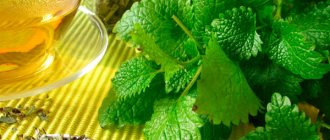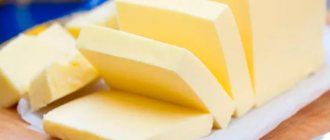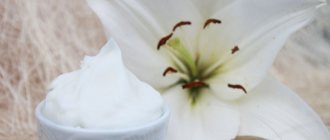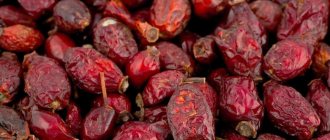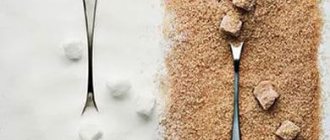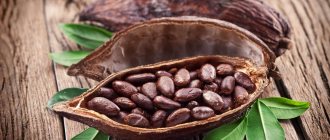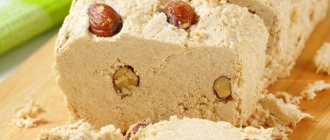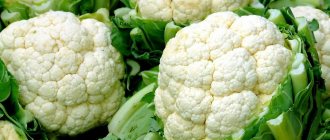Banana is a bright, sunny fruit, so loved by adults and children. It is pleasant to eat due to its sweet taste, delicate aroma and tender pulp. Bananas are very filling; just a couple of fruits can satisfy your hunger. That's why they're perfect for snacking. Mothers of newborn babies often wonder if bananas are ok while breastfeeding. Can bananas cause harm to the baby in the form of allergies, in what form this fruit is well absorbed, and how it is best to eat it in the first months after birth - we will tell you about all this in our article.
Composition, calorie content and varieties
100 g of pulp contains:
- proteins - 1.5 g;
- fats - 0.1 g;
- carbohydrates - 21.8 g;
- dietary fiber - 1.7 g;
- potassium - 42 mg;
- magnesium - 350 mg.
Manganese, tryptophan, zinc, selenium, iron, and fluorine are also present.
The amount of vitamins is presented in the table (per 100 g):
| Name | Weight, mg |
| A | 0,12 |
| IN 1 | 0,04 |
| AT 2 | 0,05 |
| AT 3 | 0,4 |
| AT 9 | 10 mcg |
| WITH | 10 |
| E | 0,4 |
Calorie content depends on the variety:
- a small banana measuring 15-18 cm has approximately 90 kcal;
- an average fruit 18-20 cm long contains 111 kcal;
- large over 20 cm - 160 kcal;
- mini banana less than 15 cm - 72 kcal.
Unripe fruit contains starch. But as it ripens, practically no of it remains in the ripe fruit; the substance is converted into sugar. This fructose is well absorbed by the body.
Beneficial features
It is recommended to eat banana while breastfeeding due to its potassium content. This substance normalizes blood circulation, eliminates swelling, and delivers oxygen to cells. The component regulates blood pressure and reduces the likelihood of developing cardiovascular pathologies.
Bananas are beneficial for nursing mothers due to the presence of fiber, which promotes active digestion. The element prevents constipation, eliminates bloating in the abdomen, and removes waste products. Plant fibers reduce inflammation and prevent the accumulation of plaques in blood vessels.
Ascorbic acid together with tocopherol block the synthesis of free radicals, preventing tissue aging. These antioxidant substances suppress the development of cancer cells.
Tryptophan fights insomnia, stress, and relieves nightmares. The amino acid improves the condition of the skin and hair. Thanks to its presence in the body, anemia does not develop.
Bananas stimulate the production of oxytocin during breastfeeding. The hormone is responsible for the formation of breast milk in the glands. Once in the baby’s blood, oxytocin helps to create a sense of satisfaction in the baby.
Manganese supports bone strength, skin health, and brain function. The element protects against the effects of free radicals. Due to the positive effect on the skeleton, the risk of developing osteoporosis is reduced.
Doctor Komarovsky's opinion
A well-known pediatrician believes that caring for a newborn includes hygiene, daily walks and a reasonable diet for the nursing mother. At the mere thought of dietary restrictions, women fall into depression, but food can be not only healthy, but also tasty. The amount of food eaten does not affect the production of breast milk, and the quality of the food will definitely affect the baby’s health.
Komarovsky recommends completely eliminating foods that cause increased gas formation in the baby for the first two weeks after birth. These include bananas, which cause soft stools and colic during breastfeeding. You can enjoy the tropical fruit when your baby is 2 months old, and you should start with a small slice. Banana is a real storehouse of healthy fiber and folic acid, which is necessary to restore women's health.
Komarovsky recommends excluding bananas from the diet until the child reaches two months, as this product provokes gas formation and can cause colic in the baby.
Allergy to bananas
The sensitivity reaction of an adult organism to fruits is rare. Banana is considered a moderately allergenic product. Its use causes cross-reactions, that is, allergic symptoms (if they appear to bananas) will also arise from kiwi, tomato, melon, papaya. Proteins of similar composition are found in birch pollen, the rubber from which latex is made.
An allergy to bananas in a breastfeeding baby is manifested by a number of symptoms that occur after eating the fruit. The severity of symptoms depends on the amount of fruit eaten and on the individual reaction of the body.
Allergies are manifested by the following symptoms:
- skin rash. Red spots are localized on the stomach, arms, and face. A person feels itching, burning sensation, pain;
- digestive disorders. There is discomfort in the abdomen, bloating, pain. After eating a banana, the baby's feces become viscous or, on the contrary, diarrhea appears;
- swelling. They are visible on the skin. It is dangerous if the swelling affects the face, mouth, throat, and shortness of breath appears;
- anaphylaxis. This is a rare but very life-threatening condition. Its symptoms develop rapidly. Urgent medical attention is required.
Children are also allergic to bananas, especially infants. The baby’s immune system has not yet adapted to the influences of the external environment; an unusual product in the diet will most likely lead to skin rashes, itching, burning, sneezing, runny nose, and malfunction of the digestive organs.
Doctors' advice
Choosing the right bananas is only half the way to success, because you also need to eat them correctly. There is nothing complicated here, but ignorance of the basic rules can lead to the child exhibiting negative consequences that could have been avoided. Here are some simple tips that nutritionists give to all nursing mothers who want to return these fruits to their daily diet.
- Various active substances from bananas do not accumulate in the child’s body, but can lead to an overdose with copious one-time use, therefore it is better to eat one of them daily than two, but every other day.
- Banana intolerance is usually a reaction to just one of its components - starch, so you can check whether this fruit was really the cause of the deterioration of the condition using any other product with a high starch content.
- Being a new product on the menu, a banana, even processed into breast milk, still provokes a certain reaction from the child’s body, but it does not always indicate something bad - for example, darkening of the child’s stool after the mother eats the fruit is not a pathology in itself and does not indicate its presence.
- If the baby’s reaction after the mother eats bananas is obvious, but there is no clear certainty that this particular fruit was the cause, experts advise waiting at least three days before repeating the experiment.
- Even the fact that during pregnancy a woman regularly ate this fruit without harm to her own well-being does not mean that during breastfeeding a banana will not have a negative effect on the child. However, if previously a banana was not the main part of the mother’s menu, and only now she felt the desire to eat it regularly, even more caution should be exercised - in such a situation, the product in question is absolutely 100% unusual for the baby.
In general, the recommendations of all experts without exception boil down to the fact that a banana is a healthy food rather than a harmful one, therefore you can and even should try it. Another thing is that slowness in increasing the dosage and carefully monitoring the reaction of the child’s body (and your own too) is mandatory at this stage.
Bananas make stool stronger or weaker
How bananas affect stool:
- the fiber in the fruit has a laxative effect if you eat too much of it;
- the presence of starch and carbohydrates strengthens the feces;
- The effect of fruits on the gastrointestinal tract is determined by the degree of ripeness. Overripe fruit will relax the intestines and cause gas and colic. If the product shows signs of rotting, diarrhea is possible;
- unripe fruits contain a lot of starch, and therefore produce a fixing effect. This applies to adults.
Does a banana strengthen or weaken a baby's stool? In children, constipation is more common after consuming the product than diarrhea. In childhood, fruits are difficult to digest. Large amounts of fiber, starch, and carbohydrates cause digestive disorders in children.
Cooking options
Bananas can be added to a wide variety of dishes, giving them a characteristic aroma and sweetish taste:
- smoothies and cocktails. Banana goes well with dairy products, kefir, and yogurt. Nuts and dried fruits in the drink will help enrich dishes with vitamins. Beat the ingredients in a blender until smooth;
- fruit salads. Bananas, apples and other hypoallergenic fruits are cut into cubes and seasoned with yogurt and cream;
- porridge. Mashed banana or chopped fruit is added directly to the plate before consumption instead of sugar and other sweeteners;
- bakery. Casseroles, muffins, cookies, pies, cheesecakes, etc. are prepared with bananas;
- jellies and desserts. These treats can consist of yogurt, cottage cheese, fruit juices, gelatin or agar-agar is added to the jelly.
Photo: dishes with banana
Banana cheesecake is made from cottage cheese or cottage cheese with the addition of other ingredients.
Banana porridge is a nutritious dish that will keep you full for several hours.
Banana is added to desserts and used as a decoration for dishes.
In addition to banana, choose hypoallergenic fresh fruits for salad
A banana smoothie can be a breakfast or afternoon snack option.
How to select and store
When buying bananas while breastfeeding, pay attention to the following points:
- spots on the peel indicate ripeness. Such fruits will turn black within two days after purchase. You should not purchase a product with mold; such a sign indicates a violation of transportation rules;
- mature specimens have a pleasant, rich aroma;
- You should not buy fruits with the stem torn off;
- Ripe bananas have a bright yellow color;
- in the center of the bunch are the most delicious fruits. If you need to buy a couple of pieces, they are torn off from the middle.
The label on the product indicates the supplier. If there is a numeric code of five digits on it, where the first is 5, this indicates the presence of GMOs in the composition.
Shelf life depends on the degree of ripeness. If fruits are purchased for a celebration, then ripened fruits are taken so that guests do not have to eat green ones.
At home, at room temperature, yellow bananas will begin to turn black the day after purchase. Green ones can last up to two weeks without spoiling. They will keep in the freezer for up to three months, but after defrosting, the fruits are only suitable for making desserts.
To keep bananas at room temperature for a nursing mother, the bunches are hung. This way the peel will not rot. Storage in plastic bags is unacceptable. It is important that there are no other fruits nearby. The ethylene they produce accelerates ripening, causing spoilage of the fruit. The tails are wrapped in foil, which slows down the rotting process.
Store bananas in a cool room, the recommended temperature is +13-14 C. You should not put fruit in the refrigerator, with the exception of overripe fruits with black spots. Before storing, bananas are wrapped in paper.
Features of product selection
Bananas can be consumed in different forms - most people simply eat these fruits fresh, but they can also be used to make a salad with the addition of cottage cheese, sour cream or cream, smoothies or purees without heat treatment. The product can be fried or stewed as the main ingredient of a dish, at the same time it is an excellent addition to baked goods - various casseroles, muffins and cookies. None of the ways to consume bananas is contraindicated for breastfeeding women, but it should be remembered that fruit baked in the oven will definitely lose some of its benefits. Heat treatment will certainly destroy some of the beneficial properties, which is why stewed, baked or fried bananas are more tasty than healthy.
In this context, it is much more important to choose fresh fruits correctly, especially since this is the form in which they are most often consumed. Global research on this subject has never been carried out, however, some experts, based on their own observations, claim that it is ripe fruits that provoke constipation to a greater extent, while unripe ones cause flatulence and general indigestion.
Accordingly, choosing the right bananas can either help solve the problem or make it even worse. When deciding on the purchase of certain fruits, a mother should always remember that the effect almost always extends to the child, therefore, having cured her problem, she can create the opposite problem for the baby.
Do not forget that bananas, like any other fruit, can be poisoned, especially since most consumers never wash bananas. In fact, experts advise not only to peel this fruit, but also to wash it, and not in any water, but only in hot water. Of course, this procedure will not help much if the fruit chosen is slightly spoiled. If a mother, after eating such food, shows the first signs of poisoning, measures should be taken not only for herself, but also for the child - he probably also received the infection along with the milk. You should not buy fruits with damaged skin or a torn tail at all - you cannot be sure that bacteria have not grown there.
Rules for use during lactation
In order not to harm the infant, they listen to some recommendations for including the product in the menu.
Introduction to the diet for breastfeeding
Is it possible to eat bananas while breastfeeding in the first month? After the birth of the baby, fruit is introduced into the diet gradually, in small portions. At first, no more than a third of the fruit is consumed. Then they monitor the baby’s reaction - whether there is any anxiety, rash, or colic. If negative symptoms occur, the introduction of the product is postponed for 2-3 weeks.
During breastfeeding in the second month, bananas are administered in the same dosage, in the first half of the day. If the baby reacts calmly, the quantity is increased to 1 pc. in a day. If an allergy occurs, do not eat the fruit for 4 weeks.
The third month after childbirth is the safest period for introducing bananas into the diet. At this time, the child’s digestive system has adapted to unusual conditions, will accept the product naturally, and newborns will not experience colic from bananas.
For the first time, eat half the fruit and monitor the baby’s condition for 24 hours. In the absence of painful symptoms, the portion is increased.
Can bananas cause colic in babies? Digestive problems in a baby are a natural physiological process caused by the immaturity of the internal organs. The occurrence of colic does not depend on the mother's diet. Pediatricians share this opinion. Therefore, a banana after childbirth cannot be the cause of infant colic.
Daily norm
How many bananas can a nursing mother eat per day? The daily portion is one fruit. Eat no more than 4 fruits per week. Exceeding the dosage is not recommended due to the risk of allergies and digestive disorders in the baby.
Wise Man Fruit
From Latin, bananas are translated as the fruit of the wise man (musa sapientum). The energy value of bananas is the presence of a large number of vitamins and microelements, and they also contain the hormone of happiness - serotonin!
Bananas are one of the types of food crops that are actively consumed in almost all countries. It is eaten raw, fried, boiled, dried, stewed, even canned. In countries where this plant is abundant, it is used to feed livestock.
Interesting! Did you know that banana is a berry? The banana plant is a herb because it does not have a hard trunk. The average length of the stem reaches 8-9 m, and its width in diameter is about 40 cm. The number of fruits on one plant is approximately 300, and the total weight of the valuable fruit is 500 kg.
By eating bananas while breastfeeding, a nursing mother normalizes blood sugar, due to which its level is within the normal range, and the mother is charged with energy for the whole day.
By eating just one fruit, we saturate our body with as many valuable substances as one serving of steamed oatmeal with milk gives us, while it is impossible to gain weight by eating a banana. Everything it gives is consumed by the body in the coming hours.
So, bananas for gw:
- Improves memory, concentration, and lifts the mood of a nursing mother;
- Have a beneficial effect on the gastric mucosa, relieving irritation and reducing pain;
- They have a large amount of correctly selected valuable substances (vitamins B, C, E), and also saturate the body with magnesium, calcium, iron and phosphorus. Read more about vitamins for nursing mothers>>>
- Helps remove excess fluid and, accordingly, reduce swelling;
- Unlike other fruits, banana can be consumed by people with low or high acidity, since it contains acids, fiber, and pectin;
- Banana is an ideal, natural antidepressant (serotonin hormone). And in the postpartum period it helps a nursing mother to endure depression more easily;
- Banana fruits replenish energy reserves as they contain glucose, sucrose, fructose;
- Using 2-3 pcs. per day, it is impossible to gain weight, but it is excellent to replenish energy reserves;
- This fruit rarely causes allergies, so some local therapists advise placing bananas in a row with other first foods (apple, pumpkin, zucchini). It is very convenient to feed your baby a banana; you just need to mash the fruit in a cup. Read the article about introducing pedagogical complementary feeding to a child
On average, one fruit contains up to 300 mg of the chemical element potassium. Due to this, blood pressure decreases and the functioning of the cardiovascular system is normalized.
It is unique that bananas contain one and a half times more nutrients than potatoes. And dried fruits are 5-6 times higher in calorie content than fresh ones.
Folk recipes
Against cough
Prepare banana decoction. The ripe fruit is cleaned, placed in a saucepan, and poured with a glass of milk. After boiling, cook for about 15 minutes. Strain the product through a sieve, dissolve a spoonful of honey. Take 20 ml every two hours until the cough is cured.
For warts
The peel of the fruit is used. It is applied to the sore spot after washing with soap. Attach with adhesive tape. Applications are made in the morning and evening for 10 days. Gradually the skin clears up.
Against bruises
Banana peel helps. After a bruise, apply the skin with the inner side to the sore spot for 15 minutes. The procedure is repeated every 4 hours. The next day there will be no bruise.
For depression
Take one or two bananas in the morning with breakfast. Traditional medicine claims that in a week there will be no trace left of the blues.
For wrinkles on the face
A mixture of half a fruit, one egg yolk and a couple of spoons of sour cream will help. The components are combined and applied to the face. Leave for 15-20 minutes. The mask smoothes out fine wrinkles.
Bananas are considered one of the safest foods to eat during breastfeeding. Fruits will help mother recover after childbirth. It is important to introduce them into the diet gradually, analyzing the baby’s condition. In this case, allergies and colic will be avoided.
If you find an error, please select a piece of text and press Ctrl+Enter.
